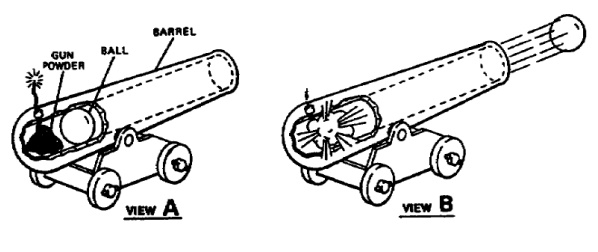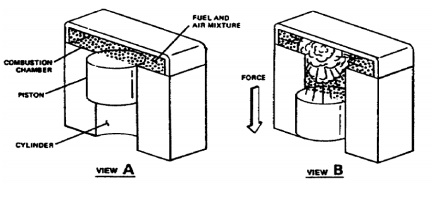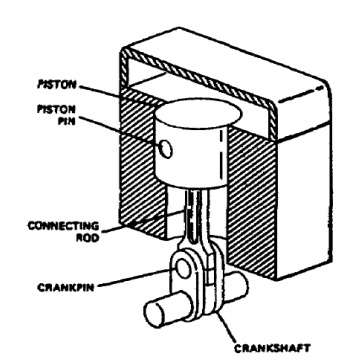Chapter: Mechanical : Advanced IC Engines : Spark Ignition Engines
Introduction about IC Engines
Introduction about IC engines
The
operation of the piston engine can best be understood bycomparing it to a
simple cannon. In view A of figure 1 on the following page, a cannon barrel,
charge of gunpowder, and a cannonball are illustrated. In view B of figure 1,
the gunpowder is ignited. The gunpowder burns very rapidly and as it burns
there is a rapid expansion of the resulting gases. This rapid expansion causes
a tremendous increase in pressure that forces the cannonball from the barrel.

Now the
cannon barrel has been replaced by a cylinder and a combustion chamber. The cannonball
has been replaced by a piston. A mixture of vaporized fuel and air has replaced
the gunpowder. In view B of figure, the gasoline is ignited. This time, the
resulting force acts to push the piston downward.

The force
of the piston acting in a downward notion is of little immediate value if it is
to turn the wheels of a vehicle. In order to use this straight line or
reciprocating motion, it must be transformed into rotary motion. This is made
possible through the use of a crankshaft. The crankshaft is connected to the
driving wheels of a vehicle throughthe drive train on one end. On the other end
of the shaft is a crank with acrankpin offset from the shaft's centre. Figure
below illustrates how the piston and the crankshaft are connected through the
connecting rod and the crankpin. Figure below on the following page illustrates
how reciprocating motion of the piston is changed to rotating motion of the
crankshaft.

Related Topics